Rising global burden of breast cancer: the case of sub-Saharan Africa (with emphasis on Nigeria) and implications for regional development: a review
- PMID: 29566711
- PMCID: PMC5863808
- DOI: 10.1186/s12957-018-1345-2
Rising global burden of breast cancer: the case of sub-Saharan Africa (with emphasis on Nigeria) and implications for regional development: a review
Abstract
Background: Despite mortality from breast cancer in Africa being higher than in high income countries, breast cancer has not been extensively studied in the region. The aim of this paper was to highlight the rising burden of breast cancer with an emphasis on sub-Saharan Africa as well as trends, characteristics, controversies and their implications for regional development.
Methodology: A review of published studies and documents was conducted in Medline, Scopus, Pubmed and Google using combinations of key words-breast neoplasm, breast cancer, cancer, incidence, mortality, Africa, Nigeria. Graphical and frequency analyses were carried out on some of the incidence and mortality figures retrieved from published papers and the GLOBOCAN website.
Findings: Globally, about 25% and 15% of all new cancer cases and cancer deaths respectively among females were due to breast cancer. Africa currently had the highest age-standardized breast cancer mortality rate globally, with the highest incidence rates being recorded within the sub-Saharan African sub-region. Incidence trends such as inherently aggressive tumour and younger age profile had been subject to controversies. Certain factors such as westernized diet, urbanization and possibly increasing awareness had been implicated, though their specific contributions were yet to be fully established.
Conclusion: Unless urgent action is taken, breast cancer will compound sub-Saharan Africa's disease burden, increase poverty and gender inequality as well as reverse the current global gains against maternal and neonatal mortality.
Keywords: Africa; Breast cancer; Incidence; Mortality; Nigeria.
Conflict of interest statement
Ethics approval and consent to participate
Not applicable
Consent for publication
Not applicable
Competing interests
The authors declare that they have no competing interests.
Publisher’s Note
Springer Nature remains neutral with regard to jurisdictional claims in published maps and institutional affiliations.
Figures
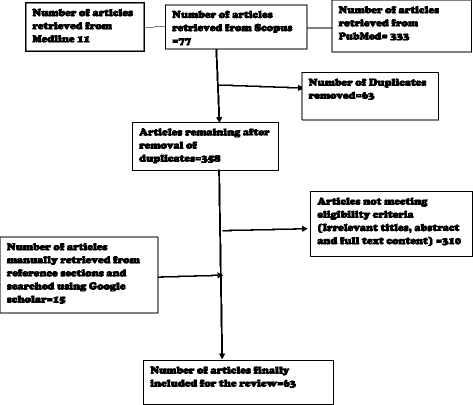
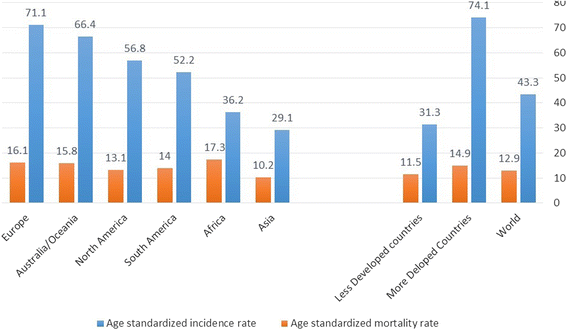
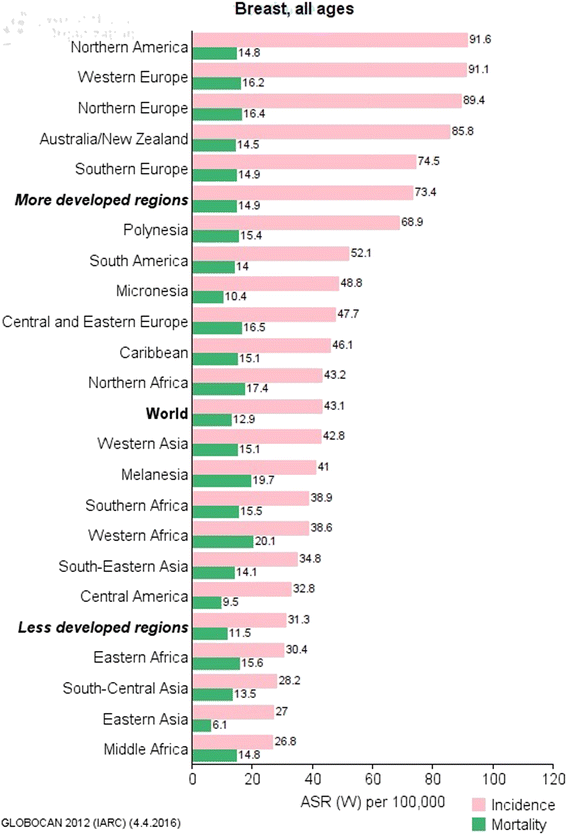
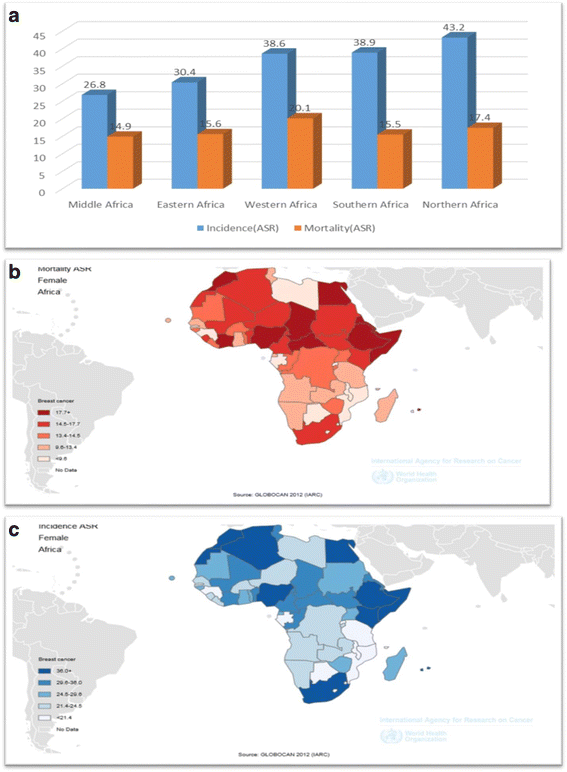
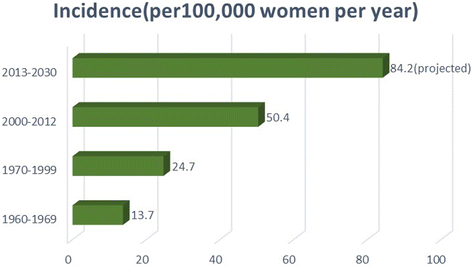
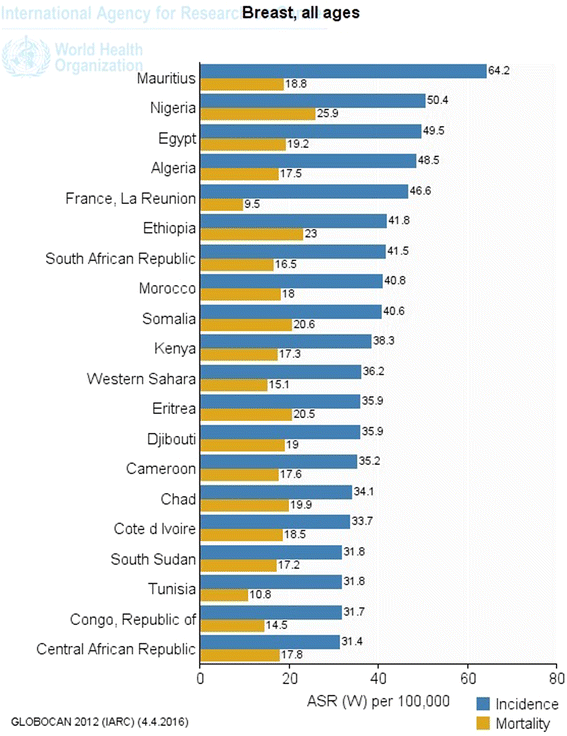
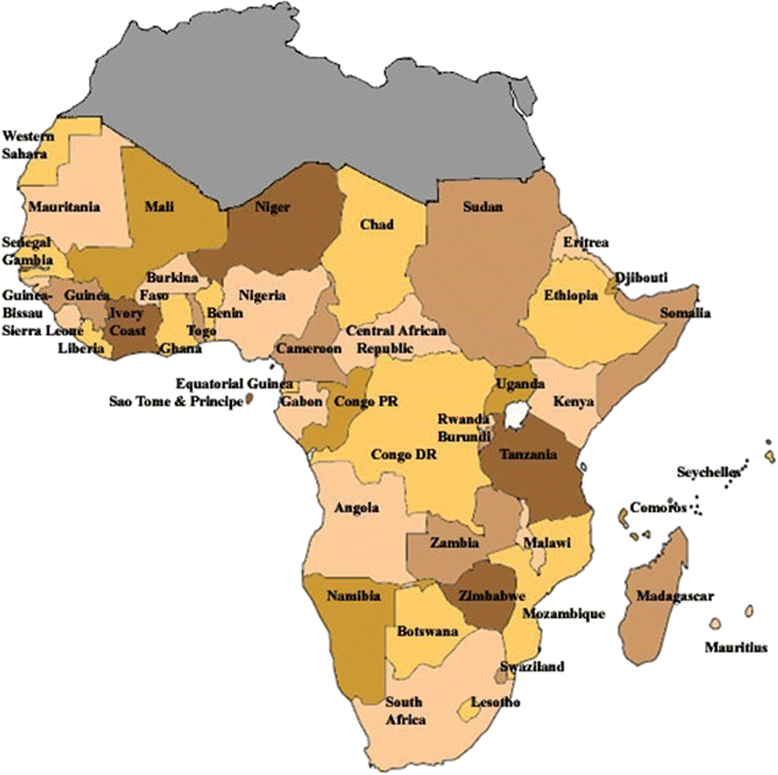
References
-
- International Agency for Research on Cancer. Globacon 2012:estimated cancer incidence, mortality and prevalence worldwide in 2012. 2012 [cited]; Available from: http://globocan.iarc.fr/Pages/fact_sheets_cancer.aspx.
-
- CANCER Research UK and IARC. World Cancer Fact Sheet.Cancer Research UK. http://publications. 15/03/16 [cited]; Available from: http://www.cancerresearchuk.org/sites/default/files/cs_report_world.pdf.
-
- International Agency for Research on Cancer. Global cancer burden rises to 14.1 million new cases in 2012: marked increase in breast cancers must be addressed. [press release]. 2013. 0i/01/16 [cited]; Available from: https://www.iarc.fr/en/media-centre/pr/2013/pdfs/pr223_E.pdf
Publication types
MeSH terms
LinkOut - more resources
Full Text Sources
Other Literature Sources
Medical

